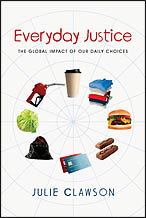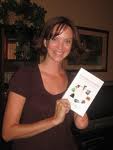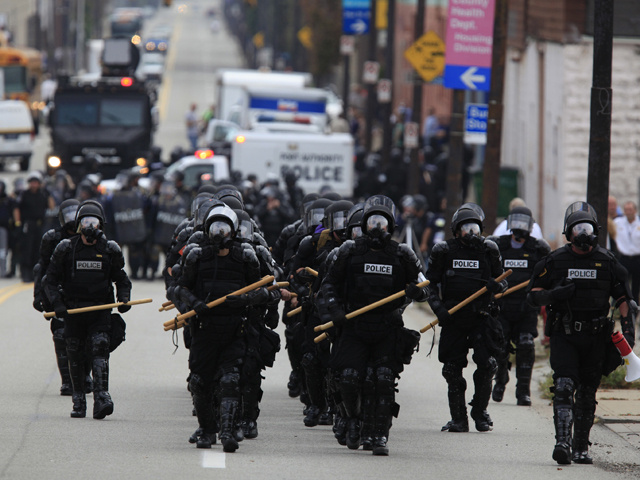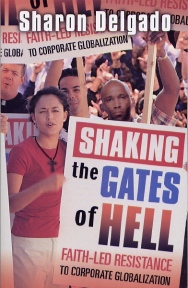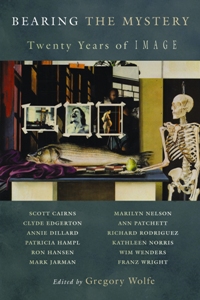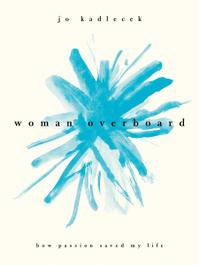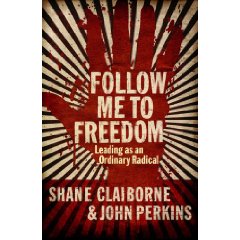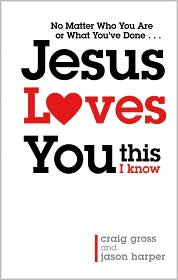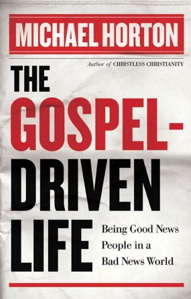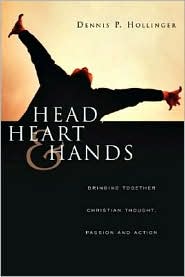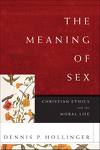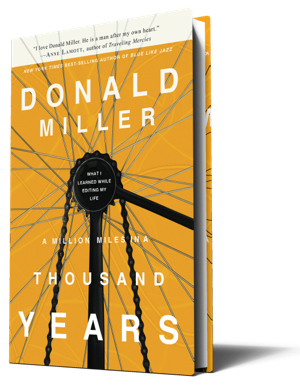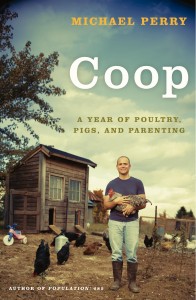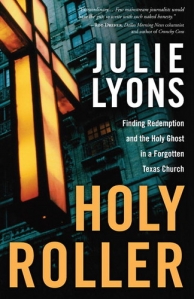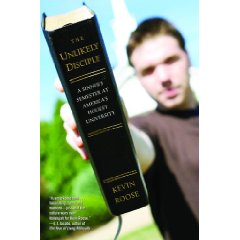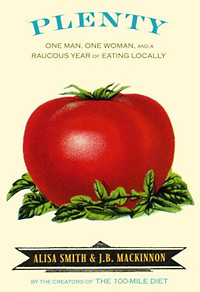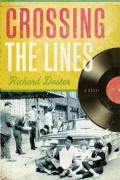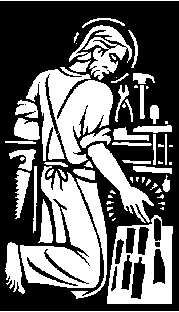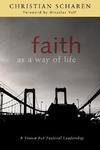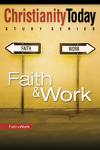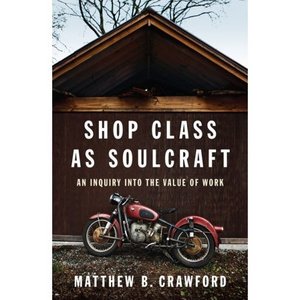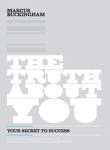important and much publicized G20 Summit held in Pittsburgh, PA. And the mixed
bag of serious protests, important resistance, violent anarchist disruption and
police over-reaction in the city of steel.
I wanted to list
off a batch of important books for those who want to further study this
topic–globalization, economic development, world hunger, and such. I am tired
from a busy week, eager to tell you about these titles, hoping against hope that
some study group or Christian discipleship team or NGO leader might care. I know
this is heavy stuff, serious and depressing at times, but—if the Biblical
story and it’s call to responsible stewardship and commitment to the public good
as we image the God who has been revealed in Christ is true, then this is the
way to abundant life. This may be part of the cost of discipleship for those of
us who have the benefits of living in the wealthiest land in the history of the
world. What does it mean to be responsible in these days? I think part of the
answer may be found in reading some of these books. I hope somebody out there
agrees; we do stock a lot of these, and more, thinking our customers might find
them important.
(By the way, if you can get to a library that has The
Christian Scholars Review, there is an excellent overview article by three
Calvin College professors this quarter [Fall 2009] surveying and offering
Christian critique of three main schools of thought in the recent discussions
about poverty and development. It is very useful and worth the trouble of
tracking it down…)
So, in no particular order, here are a handful that
are either very well done, very important, very new, or very interesting to me.
Here are the one’s I wanna tell ya about. Hang on for the
ride
The Justice Project edited by Brian McLaren,
Elisa Padilla, Ashley Bunting Seeber (Baker) 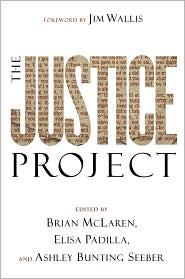
the blog, and are thrilled that it is out, declaring it to be one of the top
books of the year. Many of these authors are activists, mostly evangelical, or
emergent, explaining how the Bible can be understood as a book of justice, how
this effects different sides of life, how we can work as agents of
transformation for justice in various arenas (from rural life to race relations,
using the arts or in the suburbs, around issues of immigration, say, or for the
creation itself, on trade issues or parenting.) This is (as Shane Claiborne
puts it) “Absolutely dazzling. Here is a choir for social justice that makes
the prophets smile.” It is a diverse collection (with a few really, really
excellent chapters, including a wonderful introduction by McLaren that is worth
the price of the book, a good piece on Paul by Sylvia “Colossians Remixed”
Keesmaat, Randy Woodley, Shauna Niequist, Peter Heltzel. Most are practical
(although a piece (De)Constructing Justice by Tony Jones is pretty serious
postmodern stuff) and very nicely done. A great place to start on any journey
towards justice and a helpful handbook for anyone wanting to learn
more.
Rich Christians in an Age of Hunger: Moving From Affluence to
Generosity Ronald J. Sider (Word) $15.99 I can’t tell you how many
folks, ordinary people of various denominations, and more famous authors, have
said that this was a pivotal book for them, one of the most important religious
titles of our time. It is not as controversial as some used to say, and it
isn’t that hard to read. For anybody that thinks they know the Bible, read
this. For anybody that loves the Bible, read this. For anybody that cares
about the issues of global poverty, systemic injustice, or how to take steps
towards being responsible in our time, this is a must. As John Ortberg says,
“This material will be on the final.” Thank God for this book. It does,
indeed, do a very good job explaining not only God’s concern for the poor and
the massive amount of relevant Biblical data, not only does it navigate the
important ground between different schools of thought, but it does explain
issues of trade and aid and debt and structural adjustment and so forth, the
kind of stuff that the G20 leaders discussed somewhat and the protesters pushed
for. Very, very helpful.
Hope in Troubled Times: A New Vision for
Confronting Global Crises Bob Goudzewaard, Mark Vander Vennen, David
Van Heemst (Baker) $19.99 Again, this is an essential book for those wanting to
understand the global scene. Goudzewaard is a Dutch economist and former
parliament member who has been leading a consultation with the WCC and the World
Bank for several years, helping generate theologically informed conversation
around the “over-development of the West” and the proper ways in which
worldviews and ideologies (idols) shape the unfolding of culture and politics.
How do worldwide poverty, environmental degradation and widespread terrorism
relate? Where do we find hope? Some have taken to calling this brave and
insightful trio “the hope-sters” and while this isn’t the easiest read, it is
richly rewarding in Biblical wisdom and a new-found understanding of idols and
the inter-relatedness of the issues of the day, and how they can be reframed and
consequently reformed. Very, very important.
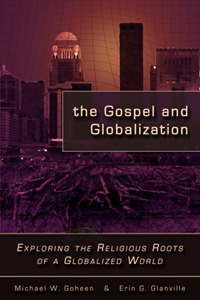 The Gospel and Globalization: Exploring the Religious
The Gospel and Globalization: Exploring the ReligiousRoots of a Globalized World Michael Goheen & Erin Glanville (Regent
College Press) $29.95 This is a book that may not be well publicized, coming
out of a small if prestigious Christian graduate school in Vancouver, and
developed by a small think tank of Kuyperian Christians, “The Geneva Society”
(affiliated with Trinity Western University in BC.) Yet I want to suggest that
this may be one of the most thrilling books I’ve seen this year, largely because
there are essays by authors that I know and respect, authors, scholars,
activists and public intellectuals whose work is only rarely brought together in
one fabulous anthology. Here we have Biblical scholars Craig Bartholomew and
Richard Bauckham and aesthetic theorist and art critic Calvin Seerveld;
Anglican Abraham Kuyper scholar, Peter Heslam and literature prof Susan
VanZanten; Brian Walsh has a truly brilliant piece in here offering appreciative
critique of Naomi Klein—it is worth the price of the book if you are at all
involved in anti-globalization work—and a thoughtful overview by the ever
thoughtful James Skillen. There are so many rich academics here: David Koyzis’
book on the historical roots of both the liberal and conservative movement is
one I often cite, and here he is, doing a serious bit of scholarly archeology;
Bob Goudzewaard, of course, is in this gathering, but so is educator Harro Van
Brummelen. Egbert Schuurman has long been an esteemed Christian theorist of
technology and it is splendid to see him included. Here, I am only naming names
that mean a lot of me, and perhaps to those neo-Calvinists who read
catapult or Comment or follow Toronto’s Institute for Christian
Studies or Redeemer College. In another review perhaps I will discuss some of
the multi-disciplinary chapters, why this is such a rich resource, and why I
commend it so, chapter by chapter. But don’t wait for my further overview:
trust me and buy this thing today. It is rare, insightful, righteous,
surprisingly diverse and a beautiful example of moving from a worldview to a way
of life, from prophetic imagination to policy proposals, from scholarly insight
to practical inspiration.
Evangelicals and Empire: Christian
Alternatives to the Political Status Quo Bruce Ellis Benson and Peter
Goodwin Heltzel (forward by Nicholas Wolterstorff) (Brazos) $29.99 Okay, this
is slow sledding, serious scholarship, and a great, great example of the way
serious scholars and activists of faith can engage with the most important ideas
in the world of ideas today. These are chapters engaging the work of two very,
very important theorists of empire, Michael Hardt and Antonio Negri. With
authors as diverse as Michael Horton and Jim Wallis, Mark Lewis Taylor and James
K.A. Smith, Elaine Padilla and John Milbank, this anthology is perfect for
anyone seriously interested in politics, economics, globalization, the forces of
Empire and the relationship of Christian faith, ideology, civic life and the
future possibilities of democracy and shalom. Diverse, international voices,
solid thinking, erudite criticism. Wow.
Power and Poverty: Divine
and Human Rule in a World of Need Dewi Hughes (IVP) $25.00 The
Tearfund is a British evangelical relief and development agency, and, as
faith-based NGOs go, is truly one of the most respected, thoughtful, and vital
of any in the world. This book is less about the needs of the poor and plans
for assistance, but backs up to reflect theologically on the most foundational
question of power: who has it, how is it used, how do the dis-empowered become
empowered? Christopher Heuertz (international director of Word Made Flesh and
author of Simple Spirituality) writes, “An important sign and symbol of
where current sociological, philosophical, and theological trends must locate
themselves as thoughtful Christian engage power, poverty and the Kingdom of
God.” This is mostly a book about the Kingdom of God, the providence of God,
and how to respond to the claims of Christ’s rule in a world of injustice,
suffering and brokenness. I love Shane Claiborne’s quip that “Folks like Dewi
Hughes are theological paramedics trying to rescue us all from the sort of
theology that gets people killed and leads to fragile systems where markets
collapse.” We could us a theological paramedic, I believe, so we commend this
serious book to you with great urgency.
Economic Justice in a Flat
World: Christian Perspectives on Globalization Steven Rundle, editor
(Paternoster) $24.99 This is a rigorous theological press, mostly aligned with
a British kind of progressive evangelicalism, balanced, integrated, wholistic
and robust. The editor is a professor of Economics & Business at Biola, so
the pieces are not all British; what an amazingly balanced set of articles and
essays, maybe the best one-volume collection of its kind. Here are pieces by
Donald Hay and Bob Goudzewaard, Michael Novak and Sue Russell, John Tiemstra and
Judith Dean. This is neither lefty or conservative, but a multi-faceted
collection seeking balance and insight. It has a few general chapters and then
many that are quite specific on foreign debt investment, offshoring and worker
migration, the role of NGOs in Africa, stuff about the international finance
systems. For fairly serious students wanting to dig in, this is very good.
Good discussion questions make this ideal for an undergraduate study group or a
gathering of folks wanting to talk through these issues of international
business and economics.
Enough: Why the World’s Poorest Starve in
an Age of Plenty Roger Thurow and Scott Kilman (Public Affairs) $27.95
This book has gotten some rave reviews. For those of use who learned about
world hunger from the likes of Art Simon of Bread for the World or Ron Sider or
Frances Moore Lappe, we know that starvation is not mostly a “natural disaster”
but caused by bad policies, unjust economic patterns, inappropriate models of
development and ideologies and violence of the left and right. These clear-eyed
journalists take us on a worldwide journey to understand the causes and
solutions to vast human suffering. Muhammad Yunus, winner of the Nobel Peace
Prize (for working on these very matters) writes “In the twenty-first century,
the world has no excuse for tolerating the existence of a billion people going
without food. Enough is a passionate and clearly-reasoned call
for action to finally end forever the age-old scourge of hunger.” Bono puts it
like this: “How, in a world of plenty, can people be left to starve? We think,
“It’s just the way of the world.” But if it is the way of the world, we must
overthrow the way of the world. Enough is enough!”
Dead Aid: Why Aid Is Not Working and How There is a Better Way for
Africa Dambisa Moyo (FSG) $24.00 This is a recent contribution to the
debate about foreign aid in Africa and an important, much discussed voice. Ms
Moyo has worked for Goldman Sachs and the World Bank, has a Ph.D. from Oxford,
and is a native of Zambia. It is a scholarly study of how foreign aid hurts,
not helps.
No Rising Tide: Theology, Economics, and the
Future Joerge Rieger (Fortress) $20.00 This came just the other day;
I had read a blurb on the back of an important book by Dr. Rieger and knew him
as the editor of the spectacular Empire and the Christian Tradition: New
Readings of Classical Theologians. I have skimmed it and it looks like a
substantive, theological study of economics from a post-colonial/ liberationist
viewpoint. Princeton Theological Seminary prof Mark Lewis Taylor says,
“Rieger’s book is where Christian theological reflection on the economy must now
begin.”

